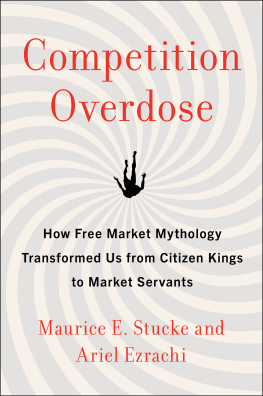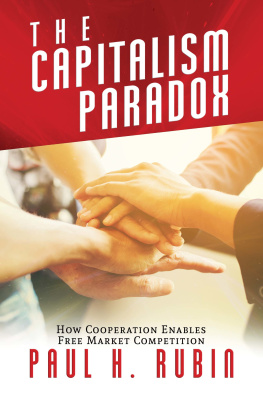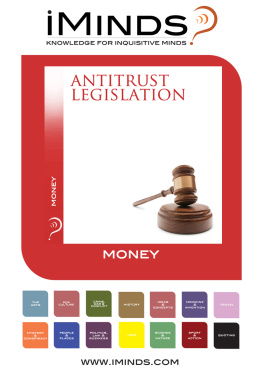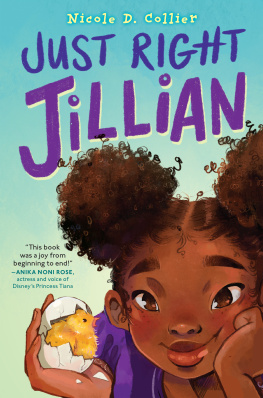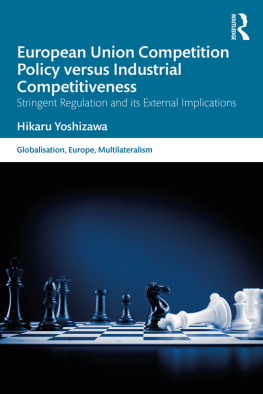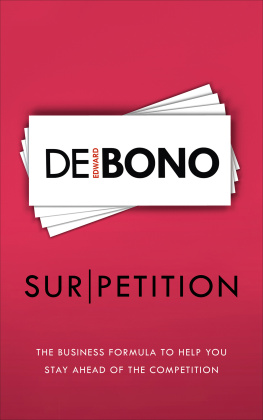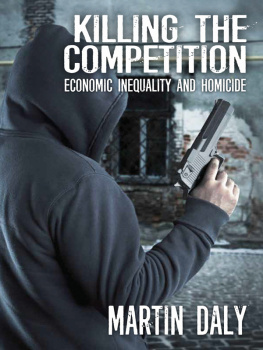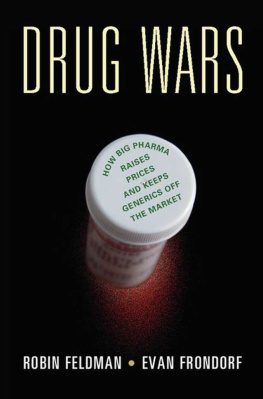Contents
Guide
To Elizabeth and Miriam
Contents
Politics today is divisive. But theres one subject on which just about everybody seems in agreement. Have you ever heard any American politician question the benefits of competition? Or, to put it another way, have you ever heard any lawmaker or policy maker praise any policy for being anticompetitive?
Probably not.
The consensus is so absolute that it amounts to an almost religious belief in competition as the key to our prosperity: If a business behavior or law is pro-competitive, its inherently good; if anticompetitive, its presumptively bad.
As a result, whatever illness our society suffers, competition is often held up as the cure. Do we want better education for our children? Create competition among public schools. Better, more cost-effective, efficiently managed prisons? Same principle. Greater happiness? Same. Increase our range of choiceswhether were talking about types of cheese, possible marriage partners, or job opportunitiesthrough competition, and well be happier and more prosperous. More competition promises to deliver what we want, often at a lower price.
Yet, many of us feel increasingly uneasy about the results of unbridled competition, even if we havent identified it as the cause of our problems. Despite the promise of prosperity, we may be working harder, longer hours at our jobs, but for less money, fewer or nonexistent benefits, and no security. And those low prices we pay may also mean lower quality. Often, were paying less, but getting much less. Our food has undeclared additives and dishonest labeling; our bargain airlines may be flying with dangerously low fuel loads. Or we indeed do pay lessfor clothing, chocolate, and coffee, for examplebut at the expense of the child slave laborers who produce these goods for us. Or we think we pay lessfor our credit cards, for our hotelsbut are actually being mercilessly exploited by companies that add hidden fees and may drive us into crippling debt. Or we pay little or nothingin exchange for surrendering our privacy to the huge corporations that make billions off of us.
Often we are told that more competition is the cure for these ills, that the real problem is the bloated regulatory state. Should we continue down this path? Or is it time to wake up and notice that, beginning in the 1970s, competition has been overprescribed, the many regulations to protect us from overdosing have been stripped away, and the warning labels suggested by economists have been removed.
As consumers and citizens, we have paid a hefty price. Rather than competition serving us, we now serve it, as our laws and economic policies turn us from citizen kings to market servants.
To be clear, as our bios on the book jacket reveal, we are not two crazy Bolsheviks, seeking to bring down the capitalist machine. Quite the opposite. We have spent the past two decades promoting competition in our writings, our speeches, and the work we have done for competition agencies around the world. Both of us, of decidedly middle-class backgrounds, were instilled from childhood with the virtues of competitionwhether on the athletic field, in the classroom, or at work. From early in our professional lives, we have devoted ourselves to what we both believed to be the sacred cause of competition: for Maurice, it was prosecuting anticompetitive restraints and mergers at the US Department of Justice; for Ariel, it was establishing an institute at Oxford dedicated to promoting competition law and policy. Through our studies and our work, we learned that competition is indeed often the perfect curean engine for modern prosperity. And we continue every year to instill in our students the lessons about the benefits of competition.
However, while we still believe that competition is often good, we also now recognize that politicians and policy makers have been pushing competition as a magical elixir, even when it is ill-suited for the task at hand. Weve also noticed that the competition ideal has been misused as a cover to promote policies that may actively harm citizens, while benefitting the companies that are exploiting them. Sometimes unwittingly, sometimes cynically, our lawmakers have sold us out, taking away our protections and removing our safety net, all in the name of encouraging ever more competition.
So, we set out to answer the question Is competition always good? And if not, when not? As two competition scholars, we initially found ourselves in foreign terrain, wandering far from the path, which we ourselves as well as our colleagues have always followed. Many of our antitrust colleagues stared at us blankly. Wait... are you saying that competition at times is bad? Some were polite, others chuckled, a few were incredulous.
Our progressive colleagues thought we were turning our backs on what they see as the most significant market power problem in the United States and the European Union: that too many markets have too little healthy competition and are therefore dominated by a powerful few. And if you think about GAFAGoogle, Apple, Facebook, and Amazonthey certainly have a point.
Our conservative friends also were deeply suspicious of our journey. Competition isnt the problem, theyd tell us. What you must be describing are simply isolated instances of market failure, which are not representative of any inherent problems with competition itself. For them our inquiry threatened to provide ammunition for the government to overregulate, thereby stifling innovation and... competition.
But, as we continued with our journey, we found many people, from all walks of life, who welcomed our findings. They knew something had gone wrong. Some of those from whom we expected the greatest skepticismnamely the top officials of several leading competition authoritieswere actually the most realistic (as well as very helpful in our research) in pointing out how competition isnt always what its cracked up to be.
And the person we might have expected to have the least to say about this particular subject, an applied mathematics professor of complex systems from South Africas University of Cape Town and coauthor of one of Stephen Hawkings most influential papers, had perhaps the most profound observations. He helped us understand why the competitive metrics that we employ to measure our successes often leave us hungry and unsatisfied; he inspired in us the idea that the type of competition we encourage can be about more than the simple goal of winning, can reflect some higher purpose.
And so we invite you to join us on this inquiry.
Well see in our First Overdose how toxic competition is fueling a race among elite universities to woo our children, only to reject them. While you might chuckle at the Dear Genevieve letter in , it will certainly change your view of the admissions process and the materials you or your children might receive from some of the leading universities. Well see how even powerful brands like Harvard and Princeton cannot stop this race to the bottom.
From elite universities, well turn to the horsemeat scandal that plagued the European food industry a few years ago. What does horsemeat in our lasagna and our hamburgers have to do with competition? Welcome to our Second Overdose, where well collect the shrapnel from the explosion of the loosely regulated, unmonitored competition machine and examine the damage it doesto quality, to the environment, to workers, to safety, and, ultimately, to us.
No journey on toxic competition would be complete without a trip to Las Vegas, where you know you will be taken, but not exactly how. Here, in our Third Overdose, well see how the hotel, car rental, and airplane booking sites are all fiercely competing for our business. On the surface this competition appears to be to our advantage, but appearances are deceiving. It turns out that this is not a competition to find ever more ways to please us, the customers, the supposed sovereigns of the marketplace, in order to win our business. No, here the competition is all about funneling the companies ingenuity into finding better ways to trick us into paying more for less, with highly sophisticated behavioral economics shaping the effort to exploit our weaknesses. After youve read that, you may find that getting picked up at the Las Vegas airport by the casinos limo isnt as wonderful as you initially thought.
Next page
